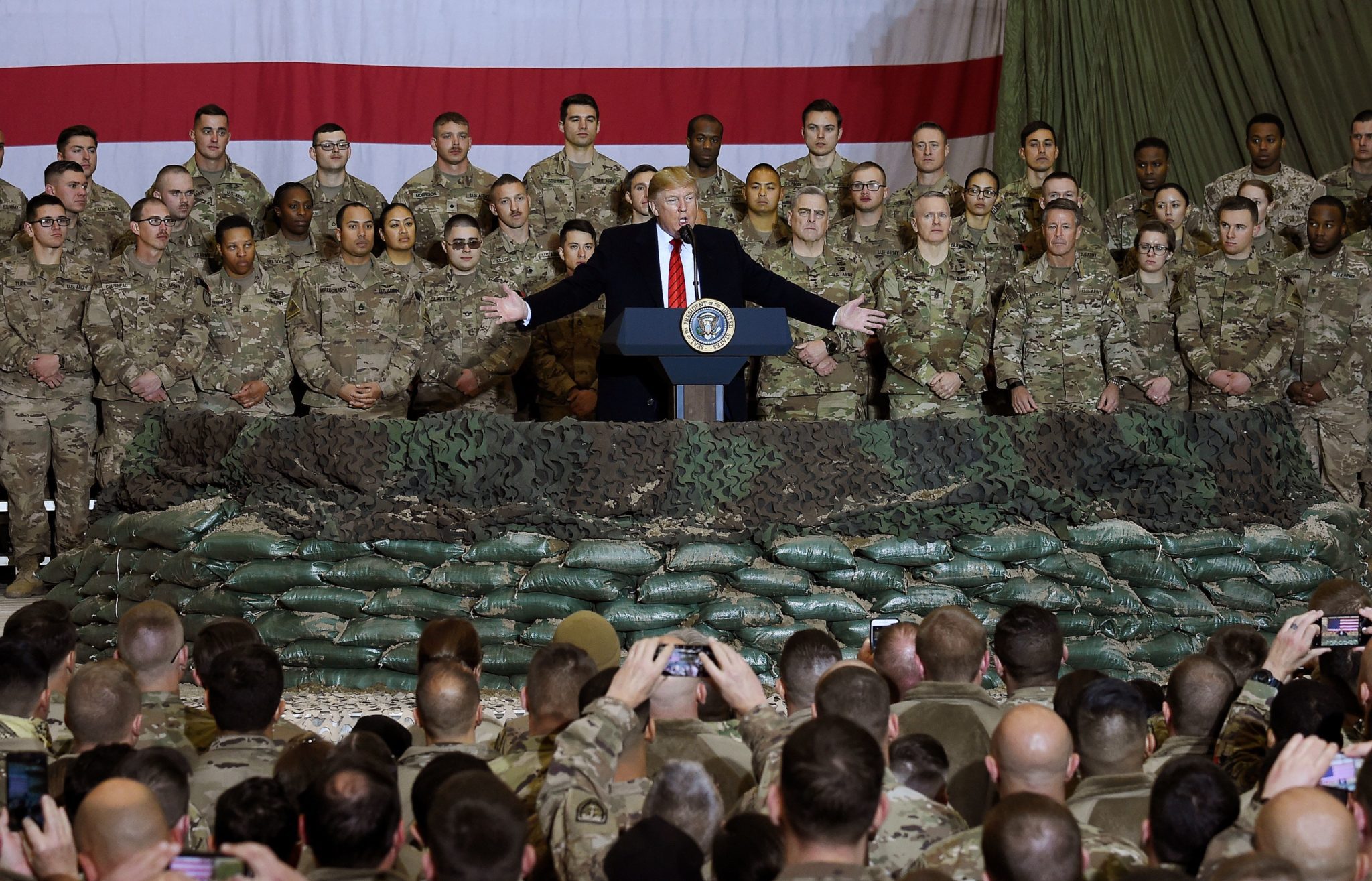Credit and Blame at the End of the War

“Fathers of things,” Kingsley Amis once wrote, “are disallowed merit but seen as the cause of it in others.” Is this a fair assessment of Donald Trump’s policy in Afghanistan? Whatever criticisms one might make of the manner in which our withdrawal was handled, Joe Biden is being praised—by sane persons, at least—for implementing a strategy inherited from his predecessor, one which, more to the point, he had himself disavowed as recently as last year.
On the one hand, it seems blinkeringly obvious that Trump should get credit for committing the United States to withdrawal. Trump made leaving possible, not least because he did what Ron Paul and others had not been able to do: convince both the GOP base and rank-and-file members in the House and Senate that there was nothing to accomplish, that the wars there and in Iraq had been colossal failures not simply of execution but ill-conceived from the start. He did this not by appealing to prudence or even to pragmatic questions about the scope of American power but with a naked rhetorical appeal to the basest instincts of the electorate. His diatribes about “shithole countries” were of a piece with his total indifference to the fate of Afghan men and women. They were also the logical and polar opposite of the absurd meliorism of earlier politicians in both parties about universal human rights, which in practice meant spending $300 million a day in a vain attempt to turn Jalalabad into Oberlin College.
Now Trump says that we should be willing to invade the country again in order to prove a point about who is really in charge to the no-doubt very pliable goat herders who held out against us for two decades. This reminds us, among other things, that he never really understood the arguments he was making against intervention except as a kind of tough guy aesthetic: Americans can and indeed should bomb your country into oblivion no matter the cost, but only if they think you’re worth their while.
It should come as no surprise that Trump (who gave an utterly incomprehensible interview on the subject to the Fox Business network recently) has no fixed or definite views about the efficacy of American involvement in the graveyard of empires. His instincts tend to fail him whenever he faces a choice between calm, consistent articulation of principle and the possibility of publicly beating Democrats with a rhetorical stick. Thus, he is willing to claim that by letting pharmaceutical companies quadruple their stock prices he saved millions of American lives, but he refuses to appear with Kanye West at a recent pro-vaccine rally in Chicago. This is how he was throughout his re-election campaign: not serious enough about the virus for the liberal establishment, but only willing to express skepticism of even the most absurd lockdown measures long after the fact and in the coyest language; simultaneously committed to a pseudo-conciliatory attitude toward race relations that involved a hands-off approach to rioting in major cities, and to employing the most incendiary language in response to crises in the face of which he was unwilling to take action.
But enough for one day about the curious legacy of the former president. A more important question is the one ultimately raised by our leaving Afghanistan. What would a sane American foreign policy look like? It would begin, first, with an acknowledgement that, whether we like it or not, we are an empire rather than a nation. We cannot feign indifference to or escape the concerns of a world in which we are the wealthiest, most powerful country after inheriting a post-war order in which we were the sole non-communist nation with an intact economy. We should be perfectly capable, for example, of helping to end the ongoing genocide in Tigray without committing ourselves to 20 years of war and a bill in the trillions of dollars.
But it does not follow from this recognition that we are capable of righting every wrong. Nor, more to the point, should we pretend that such horrors are our first priority. It is a good thing to feel responsible for displaced persons around the world, but what about those millions of de facto refugees already living within our borders—the homeless, the addicted, the mentally ill and obese? A country that offers San Francisco as evidence of its superior way of life is unlikely to convince the world that it knows what it is doing. Until we can achieve some kind of internally cohesive vision of human dignity, we will be hard pressed to share our so-called values with the Taliban.
Matthew Walther is editor of The Lamp magazine and a contributing editor at The American Conservative.